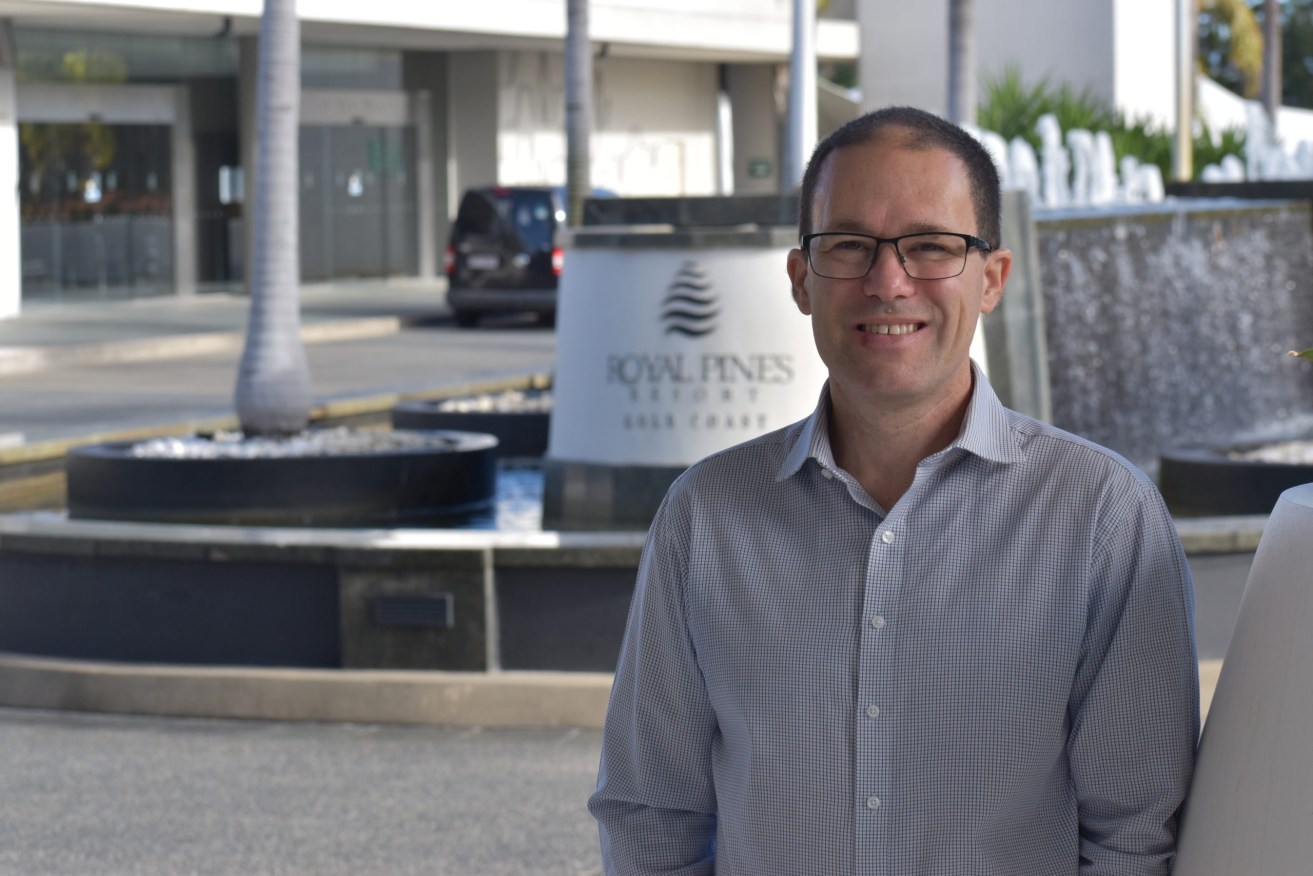Doctors’ orders: Why rural Qld needs to keep in the best of health this week
Rural Queenslanders better not get sick or injured this week, as medical leaders from across the state converge on the Gold Coast for the biggest health conference since the start of the pandemic.


RDAQ president Dr RT Lewandowski ahead of welcoming hundreds of rural doctors to the Gold Coast on Thursday.
Like other events last year, the 2020 annual conference of the Rural Doctors Association of Queensland shifted to a virtual platform as the State Government, managing the early stages of a still unfolding public health crisis, clamped down on mass gatherings.
Twelve months later and in-person conferencing has returned, this year at Royal Pines Resort on the Gold Coast where more than 250 doctors and medical student delegates, plus their families and trade exhibitors, will gather from Thursday.
The last time Queensland’s rural medical fraternity met face-to-face was June, 2019 in Cairns, when current Health Minister Yvette D’Ath was Attorney-General and before Chief Health Officer turned Governor-designate Dr Jeannette Young became a household name.
Both women will be at the conference this week, albeit attending separately, with D’Ath officially opening the event on Thursday night and Young speaking on a panel on Saturday about where health care will progress in the future beyond the pandemic.
Despite the pandemic’s transformative impact, age-old challenges that created the need for RDAQ’s creation in 1989 still persist, according to the organisation’s president, Dr Raymond (RT) Lewandowski.
The Innisfail doctor, who came to Australia from the US early last decade, initially working in Kingaroy, lists workforce shortages and working conditions for medical staff in rural areas, and the disparity in health access and poorer health outcomes for rural patients when compared to those living in cities as the sector’s primary challenges to resolve.
“None of that is easy to achieve, which is why we are still here,” he said.
“Problems only get worse when you don’t talk about them, so conferences such as these are an important first step in getting action on priority areas.
“We are not a political organisation; we are an organisation focused on solutions and feeding these up to our key decision makers.
“We’re certainly glad we have political leaders and key thinkers on health policy coming to the conference this week.”
Shadow Health Minister Ros Bates, who in recent weeks has portrayed Queensland’s health system as one besieged by crisis in the hands of an incompetent minister, will be given almost free rein to land more blows on her political foe when she takes part in the conference’s ‘medico-political’ forum on Friday.
Significant issues from funding models for primary health care to the COVID-19 vaccination rollout are expected to be discussed at the forum, which D’Ath has declined to attend.
It is anticipated that Bates will continue to attack the Palaszczuk Government over failures in health care capacity planning, which is seeing a shortage of maternity units and overcrowding in public health facilities, particularly emergency departments.
RDAQ has consistently argued that improvements in primary care – making access to GPs more accessible and affordable, in what is a joint Federal and State responsibility – will help alleviate pressure on public hospitals.
“I sometimes think that the only way we’re ever going to fix this is a complete re-write of the National Healthcare Agreement,” Lewandowski said.
“Again, it’s another good reason to be having the discussion.”
Lewandowski will join Bates on the panel, alongside Office of Health Consumers Queensland CEO Melissa Fox, Australian Medical Association president, Professor Chris Perry, and Rural Doctors Association of Australia president Dr John Hall.
Lewandowski said the forum would tackle health care from all angles.
“Our highly-anticipated annual medico-political forum gets national perspectives, consumer perspectives and Queensland perspectives on rural and remote health, all in one room, to achieve the most thorough discussions possible for the benefit of the communities we serve,” he said.
“By having these important discussions at a state and national level, we are ensuring the dynamic and ever-changing nature of rural and remote health is kept at the forefront of our political leaders’ attention.”










